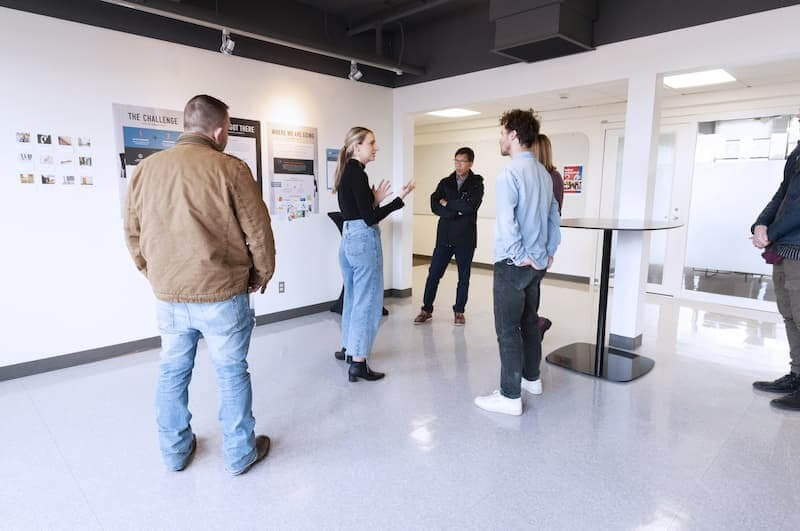Graduate Minor in Visual and Material Culture

The graduate minor in Visual and Material Culture (VaMC) complements the work of students enrolled in Ph.D., MFA, and M.A. programs at the University of Notre Dame by providing research experience in the study of art and material culture from a global perspective.
Graduate students minoring in VaMC acquire foundational knowledge in the histories and theories of global art through course offerings from faculty in the Department of Art, Art History & Design (AAHD) in ancient, medieval, early modern, modern, and contemporary art. The minor introduces students to research methods that intersect with, but are distinct from, those of other disciplines such as film or digital media studies.
Pursuing a graduate minor in VaMC provides a way for graduate students to conduct image-centered interdisciplinary research in conversation with art historians from AAHD. It is also an excellent way for students to become part of a large, cross-campus community of scholars involved in research, teaching, service, activism, and programming related to the study of art.
Requirements
Notre Dame graduate students interested in pursuing the graduate minor in VaMC need to obtain permission from their respective dissertation or thesis advisors before applying for admission to the minor. Once this permission is granted, prospective students should contact a member of the art history faculty by email to express their interest in the minor, explain briefly how the study of visual and material culture relates to their research interests and career goals. Admission will be granted to qualified students by the director of the VaMC graduate minor. Admitted students will be required to fulfill the following requirements:
a. Three courses (9 credit hours)
- ARHI 60910, Research Methods and Theories in Art History (3 credit hours)
[Please note that this is a writing-intensive course. Those enrolling in the course should have experience in writing research papers and a familiarity with the discipline of art history. For these reasons, it should not be the first art history course taken by students pursuing the VaMC minor.]
- Two additional courses in art history (6 credit hours). A course on a topic related to the study of visual and material culture in another department can be counted toward this requirement with the approval of the director of the VaMC minor.
The double-counting of courses is permitted for fulfilling the requirements of the graduate minor in VaMC and those for another graduate degree in the arts and humanities.
b. Participation in art history works-in-progress events
All those pursuing the minor must attend at least four of these events during their period of enrollment in the minor and present (and receive feedback on) their own research at one of those four events.
c. Proof of research competence
Students enrolled in the minor will submit a significant research paper or annotated bibliography (approx. 6-10,000 words) related to their art historical training to the director of the VaMC graduate minor. The research paper or annotated bibliography can be developed as part of the required coursework and must be approved by the art historian under whose instruction or supervision it was produced.
Continued enrollment in the minor is contingent upon satisfactory progress in coursework and research requirements described above. “Satisfactory progress” here means that the student receives approval from the director of the VaMC minor in the annual review of all those enrolled in it.
d. Proof of completion of requirements for the minor
Upon completion of the requirements for the VaMC graduate minor, the student must confirm completion with the director of the VaMC minor. The student may request a letter confirming completion of the minor suitable for use in an academic job dossier.
Questions? Want to get started in the visual and material culture minor?
Tatiana Reinoza
Assistant Professor, Notre Dame du Lac Assistant Professor, Latinx
Email: treinoza@nd.edu